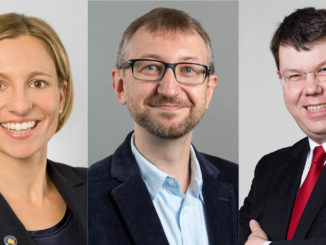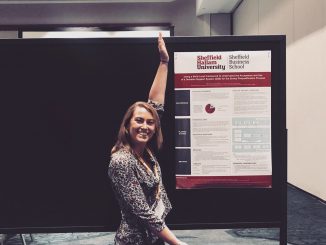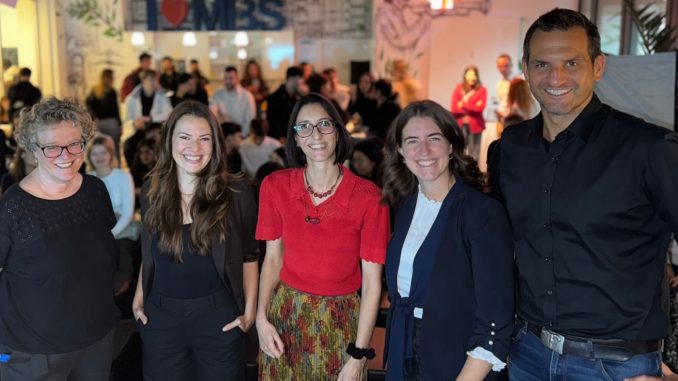
More than 150 guests joined us at Munich Business School for the final event of our research project STAY OK: Rethinking Wellbeing at Workplaces. The atmosphere was attentive and engaged, with workplace wellbeing taking center stage – a topic that resonates widely and raises critical questions for the future of work.
The event was hosted by Prof. Dr. Giulia Parola, who provided an introduction to STAY OK, framing the presentations within the broader context of our research project and its outcomes.
Perspectives on Workplace Wellbeing
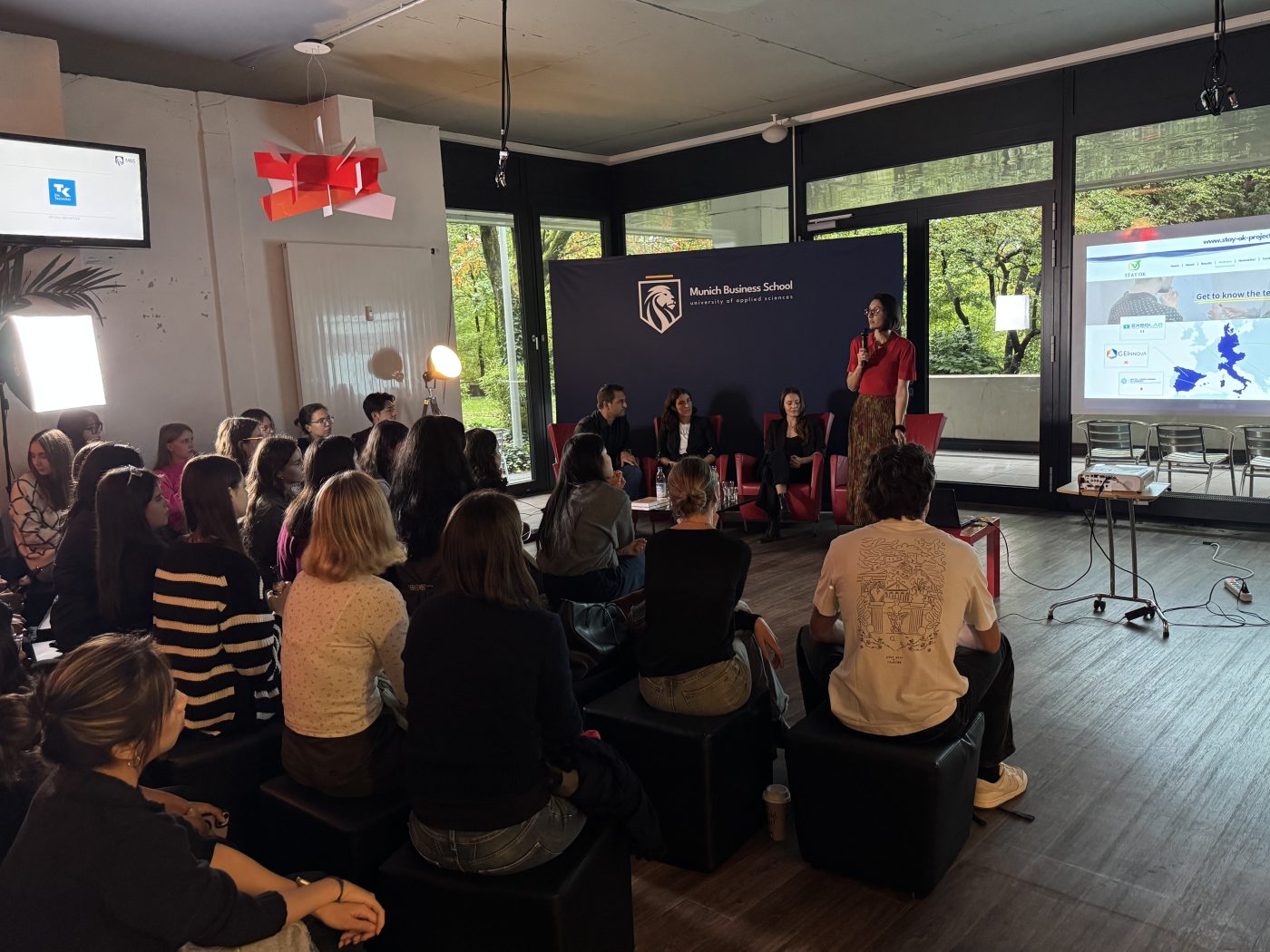
Three keynote contributions offered thought-provoking insights into different dimensions of workplace wellbeing:
- Denise Harrison (Founder & CEO, THE PEOPLE LEADER Academy) emphasized the importance of self-leadership for the health and motivation of teams. Her talk about “Lead Yourself First” delivered a clear message: leaders must take their own wellbeing seriously, as this forms the foundation for their team’s performance.
- Nico Reis (Senior Coach, scale up) in his session “The Importance of Core Values in Growing Teams”, highlighted how shared values act as a compass for growth. Teams grounded in clearly defined values are able to scale more sustainably while staying resilient in dynamic environments.
- Nathalie Klinser (former Equality and Diversity Officer at MBS) explored the idea of inclusion in the workplace in her talk “Inclusion at Work, More than a Seat at the Table.” True inclusion, she argued, goes far beyond formal representation: it thrives on genuine participation, recognition, and everyday diversity – factors that ultimately also drive business success.
Key Takeaways
From the presentations and discussions, three central insights emerged:
- Self-leadership is the foundation of healthy, resilient teams.
- Value orientation is essential for growth, resilience, and sustainable success.
- True inclusion requires more than structures – it must be a lived practice.
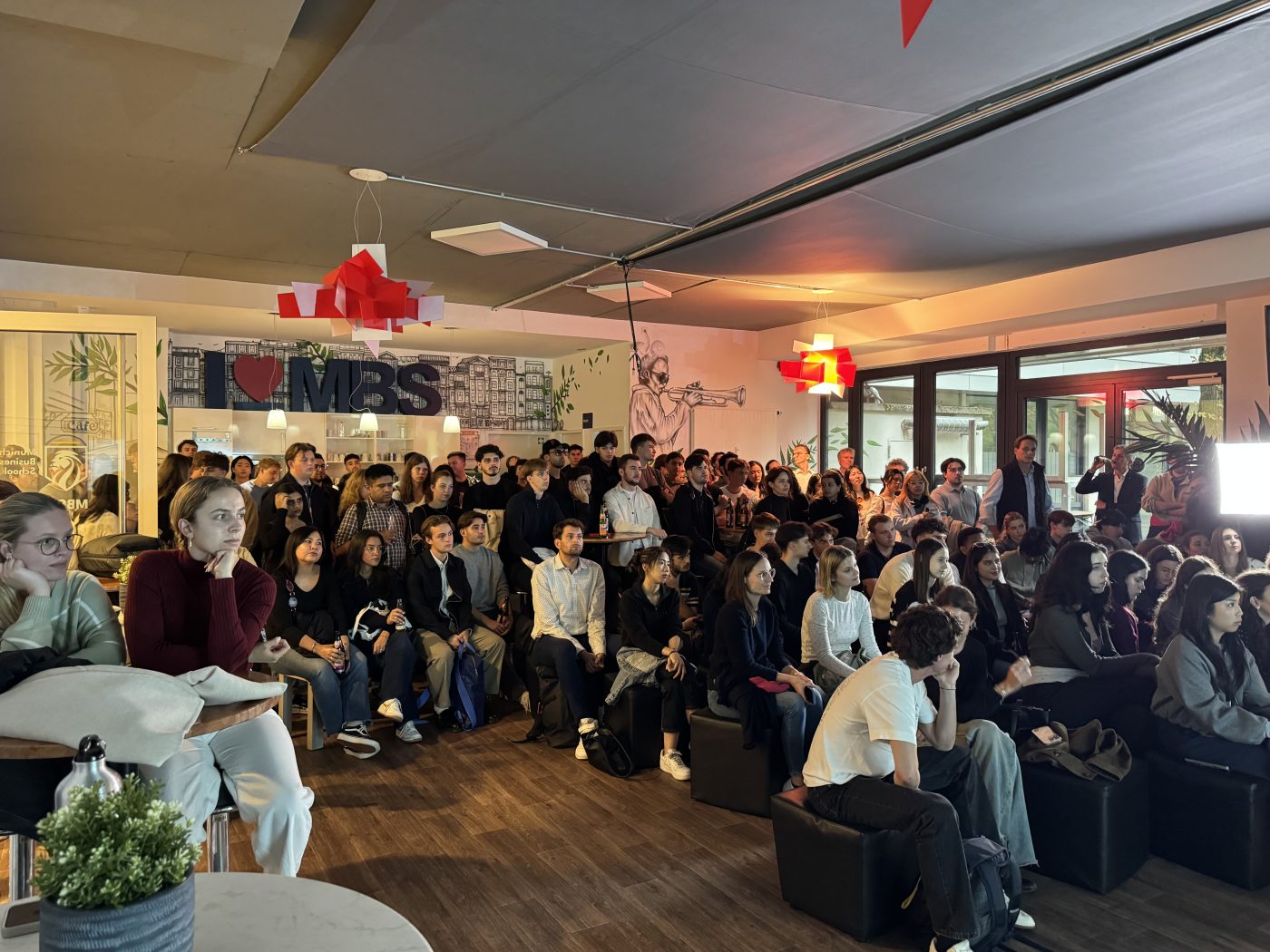
The conversations with participants revealed both the diverse approaches already being taken in organizations and the continuing need for new concepts and exchange in this field.
Wellbeing Requires Consistent Action
The STAY OK project has shown that workplace wellbeing is not a peripheral issue but a strategic priority. It requires consistent action at every level – from leadership to employees alike.
Further resources, including all materials and tools developed during the project, are available on the Website of STAY OK.

